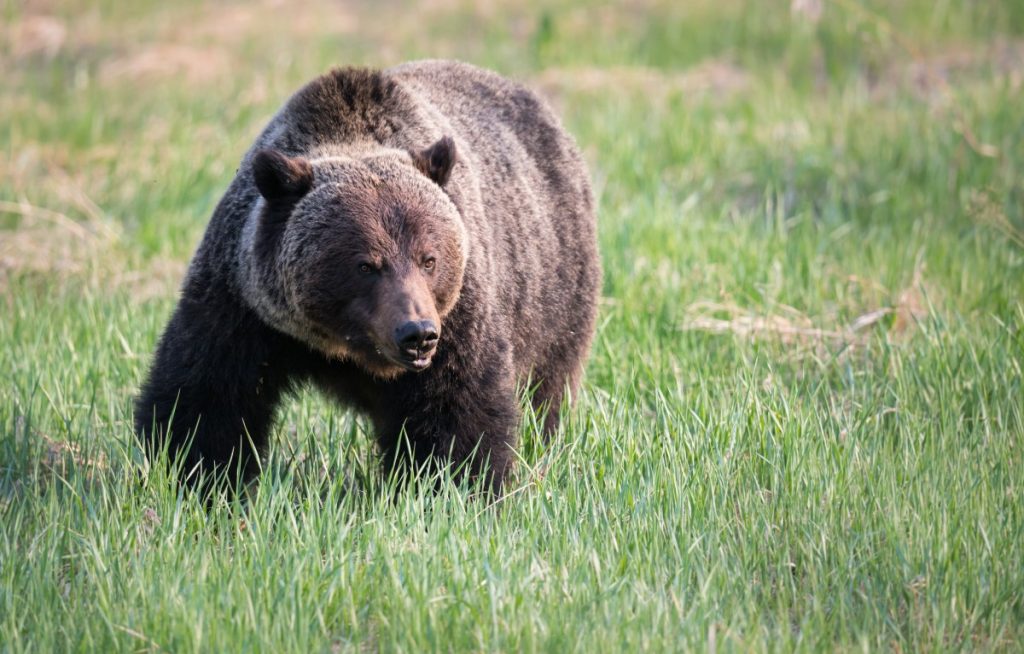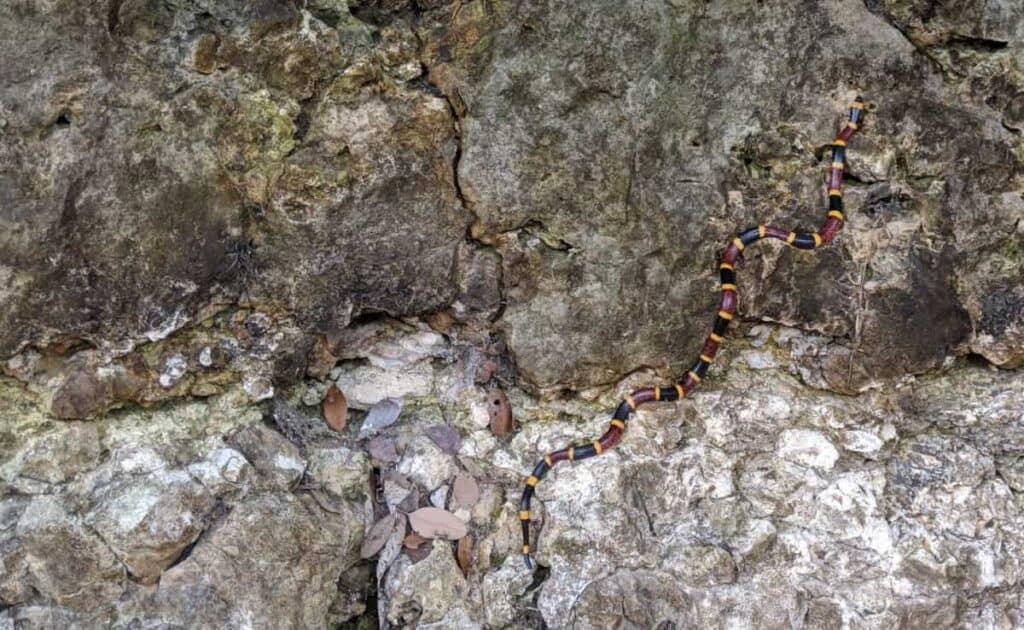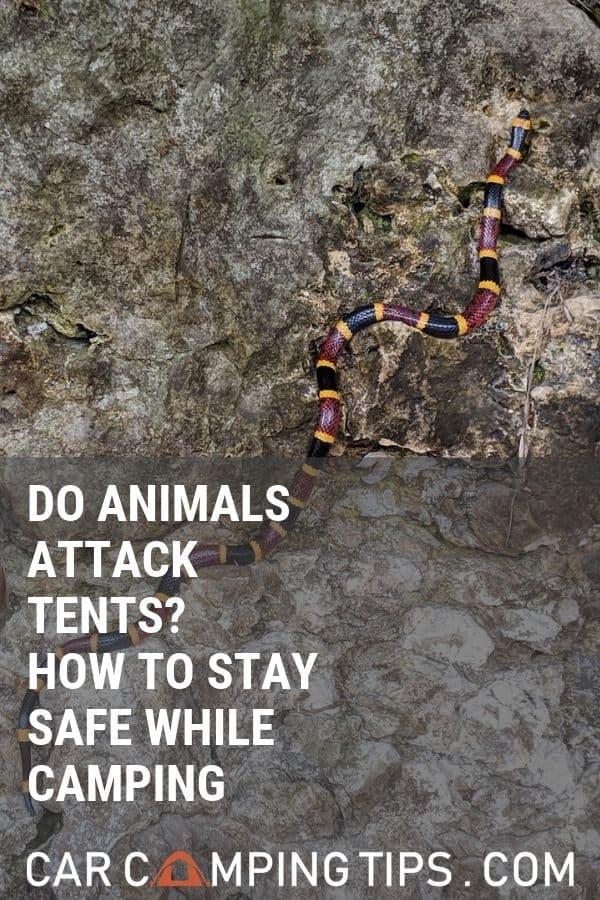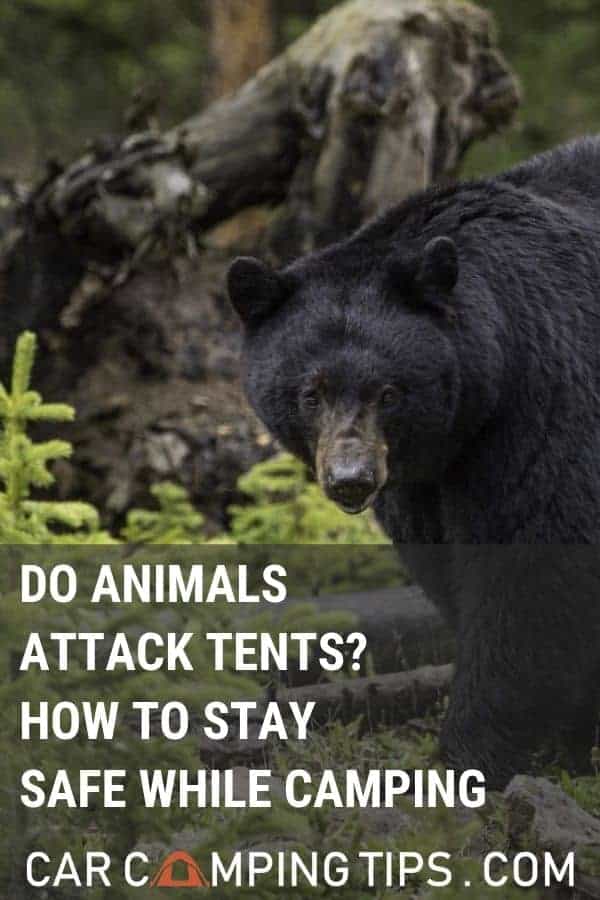It’s completely understandable to feel nervous about camping. The lack of solid walls in a tent can be really unnerving, especially because of news articles and Facebook delivering the worst possible outcomes to our screens. There are lots of things to do to keep animals away, even if they approach, but it makes sense that our most vulnerable time is when we are sleeping, especially in a tent since there is little that separates us from the outside.
Do Animals Attack Tents? Tents are not a proven deterrent against attacks from large wild animals such as bears or cougars. A tent, however, serves as protection while you sleep from insects and snakes.
I’ve wondered this myself, many times, as I’ve been camping in the wilderness and decided to do some research to help answer the question.
By the way, as an Amazon Associate, I earn when buying qualified products through links on my site.

Do Animals Attack Tents?
Tents are not a guarantee of protection. There are a few instances of fatal bear attacks for people within tents. It’s likely that there are more instances that we do not know about. That being said, considering the odds of an animal attack in any circumstance can help answer the question of whether a tent can help in that regard at all.
If you search around, most forum posts are only anecdotal whether or not you are safer within a tent or outside. So the most common answers to find an answer to whether you are safer inside a tent are mostly opinion based.
This makes sense. After all, it’s impossible to ask animals, and performing studies with people in tents vs. people out of tents for animal attacks would be completely unfeasible since attacks are so rare.
A further complication is that the data available is not comprehensive because people sometimes go missing without any explanation, and many incidents are not reported. Additionally, some of the data include Mexico and Canada, and some do not.
However, there is hope to find a reasonable answer. We can look at the data to find how likely an attack in a tent is against the data about attacks in general.
The first question is to determine how many people should be a part of the numbers to calculate the risk of being attacked.
How Many People Go Camping?
What we do know are some key numbers from the 2017 Camping Report by Outdoor Industry
- 40.5 million people went camping in 2016 on 587.2 million outings.
- 71% or 28.7 million campers sleep in a tent
Bear Attacks For People In Tents
On Wikipedia, a list has been compiled for fatal bear attacks since the 1900s, bringing the total of these attacks to 73 for fatal attacks in the United States. All of these deaths were not involved with camping–but most of them occurred in the wild.
Even if we are conservative, and say that there were 1000 fatal bear attacks and that these attacks each represent a day for a camper, then we can average these attacks for 100 years. This means that for days people who go camping in a year, the chances of being attacked is less than .000000172%, or 1 in 58 million. If we only take into consideration the 73 recorded deaths, the probability is closer to 1 in 793 million of a fatal bear attack.
These probabilities are calculated by comparing against the number of days a person went camping in a year: 587.2 million.
Location Specific Risk
These data above does not take into account probability based location. Camping in Alaska or the northwest will have a higher probability of a fatal encounter with a bear, and those camping in other locations will have a lower probability of a fatal encounter.
As an example using the same data a bit more specific, using camping and fatal bear attack data only from the Mountain Region (Idaho, Montana, Wyoming, Utah, Colorado, Arizona, New Mexico), and assuming that all regions camp for the same number of days, then the probability of a bear attack in the Mountain Region is 1 in 328 million.
Even considering location-specific risk, the probabilities for the highest occurrence locations are well beyond 1 in a million.
Out of all of these recorded attacks, only 11 of these attacks were on campers within tents.
This clearly shows the following
- Tents do not offer protection from bears
- Even with conservative estimates, the chances of being attacked by a bear at all are extremely unlikely
- You are more at risk in Alaska, Montana, and other locations with higher bear populations.
Cougar Attacks For People In Tents
Again, many of these fatalities did not involve camping at all–many of them were in areas where humans live where cougars were not expected.
According to Wikipedia, there have been an estimated 18 people killed by a cougar in the United States since the 1900s.
Under the same thought process as above, if we conservatively say that 500 people have been fatally attacked by a cougar since the 1900s, then the chances of being attacked and killed by a cougar for people who camp are smaller than .000000851%, or 1 in 117 million. The odds considering only the 18 noted above would be over 1 in 3 billion.
From the lists I researched, there are no recorded fatalities from cougars attacking humans in tents. There is one story of a cougar running into the side of a tent in an attack, and continuously attempting to get in, but the couple was able to scare off the cat. (Source: Camper fends off cougar with axe in British Columbia: Animal later shot. National Post, February 26, 2001.)
You are not immune to danger from a cougar in a tent, but the chance of a fatal attack occurring is almost 0.
Coyote Attacks for People in Tents
Coyotes are not typically a threat, but they can be alarming when they howl in the middle of the night. If you want to see more detail about coyotes and whether they are a threat or not, check out our article that goes into detail on this subject.
Snake Bites for People In Tents
This article is getting in tents, isn’t it? Hah. Have to break up the dry statistics talk.

From the Department Of Wildlife Ecology & Conservation, 7000-8000 snakebites happen every year, with only 5-6 being fatal, bringing the probability of a fatal snakebite to 1 in 50 million. This is attributed to broadly available medical assistance. Snakebite occurs much more commonly than other animal attacks because snakes habitats extend to rivers, construction zones, and backyards.
Should you be concerned about snakes and sleeping in a tent? This danger is minimal because snakes in North America can’t eat you, and thus normally don’t hunt humans. Snakes are dangerous when provoked or frightened. If you have scouted out your area where your tent will be, then your danger is minimized. Also, while a tent can’t keep out a bear, it can definitely keep out a snake.
For more detail specifically if snakes can harm you while in your tent, check out our article specifically on this subject here.
Raccoon Attacks While Camping
Believe it or not, it has happened where a raccoon as attempted to attack someone even while they are in their tent. (If you believe Reddit is a trustworthy source) Check out the story, here.
There are some things you can do to prevent raccoons, specifically from approaching your tent. Make sure and check out our article, here on the subject if you’re like to learn some tips.
Summary: Are You Safe In a Tent?
Although against big animals a tent does not offer any protection, you are safe in a tent if you take the necessary precautions simply because animals fatally attacking people in the first place is very rare.
Numbers don’t tell us everything, especially since we don’t have all the data. What the numbers specifically don’t tell us is the preparedness of each camper against the possibility of attack from animals. Just because the danger is remote, it’s still important to take every sensible precaution.
Ways to Minimize The Risk of Being Injured By An Animal
Know Your Environment
You are more at risk for certain animals depending on where you are. If you are in the West, particularly the Northwest, then bears are much more of a concern. Alaska and Montana being two states where many of the known fatal bear attacks have occurred. Fatal Wolf attacks are rarer than any of the other animals listed in this article.
Bear Country
Depending on the location, black bears or grizzly bears can predominate an area. Grizzly bears are typically described as more dangerous, but both have hurt or killed humans and thus need to be treated with respect.
If you are camping in the west, particularly the northwest, find out if you are going to be camping in bear country. If so, there are extra precautions you must take.
Making sure your food is away from you as you sleep is important wherever you camp to prevent varmints and other critters from getting into your pack, or more importantly, your tent. However, in bear country, these precautions are vital. When in bear country, even the smell of food on your clothing increases your risk.
Snakes
Poisonous snakes can be found in every state, but in some states, particularly Arizona and Texas, lead the US in numbers of species of poisonous snakes. This means you need to be careful while in the country (or even in undeveloped land), particularly in Arizona or Texas. Snakes are typically encountered en route, and thus the best protection is to wear long pants (even though some bites this will not be enough) and to watch your feet. Be extra cautious in locations with nooks and crannies, such as rocky locations, or in tall grass.
Prevention Is The Best Protection
Your risks are the lowest if you take precautions to avoid a confrontation with a wild animal.
Hang Up Or Stow Your Food
If you are wilderness camping, a simple way to get your food away from your campsite and out of the reach of varmints and bigger animals is to tie your pack with the food and garbage and hang it up at least 10 feet above the ground.
This can be done by tying your rope or webbing to a rock and then throwing it over a sturdy and high tree branch. Ideally, the branch should allow the pack to be 4 or more feet from the trunk, but this isn’t always possible.
Use Bear Canisters
In “bear country”, there are special canisters made special for the task of constraining the smell of your food and garbage. These are not necessary for most regions in the United States, and should only be considered if you are camping in bear country.
Safety In Numbers
From one study from the Wildlife Society, 90% of attacks from black bears only occurred on groups of people of either 1 or 2. Although nothing is a guarantee from danger, it makes sense that a predator is less likely to attack if it views you as more of a threat. The more people in a group, the less likely an attack.
Defense
Never Engage (curiosity killed the cat)
Several of the accounts for those killed by snakebite involve people who pick up the snake up to either move or kill the snake. The best idea is to avoid the snake entirely–do not try and capture or relocate the snake.
Seeing wildlife is not the same as being attacked by wildlife. Just because you see a dangerous animal does not mean they are a threat. If you see a bear or a cougar from a distance, consider moving your campsite and avoiding the situation.
Bear Spray
One defense mechanism is bear spray. Bear spray is intended to be fired from long distances and is not as effective in close quarters. The spray is non-lethal and is thus safer for a camper to use on the animal, as well as around other humans.
How To Feel Safe While Camping
Preparation and knowledge are important in feeling safe–however, even if you are prepared, you may still feel dread and fear when camping. A tent is a great way to protect yourself, mentally, from the outside world. But even with a tent, it can be difficult to feel comfortable thinking about the horrible animal attacks you see in documentaries or news articles.
Remember that your chances of being attacked are worse than the chances of winning most lotteries.
Earplugs
By far, the tool that has helped me sleep better is earplugs. Staying up all night in dread is not very effective protection, and it’s more important to be alert during the day against other dangers than awake fretting all night.
Being in nature you’ll find out that a lot of little critters live out there, and they make a surprising amount of noise. This noise can be extremely distracting and alarming. therefore, earplugs give your mind peace and quiet while you sleep.
Summary
The probability of being attacked in a tent by a wild animal is extremely low. You are far more likely to be involved in a fatal car accident than a fatal animal attack.
However, even though the chances of a wild animal encounter are low, it’s important to take precautions to prevent any mishap. Take reasonable precautions, and avoid fretting about the worst-case scenario.
Articles Involving Tent Attacks
The following are articles with attacks involving tents.


